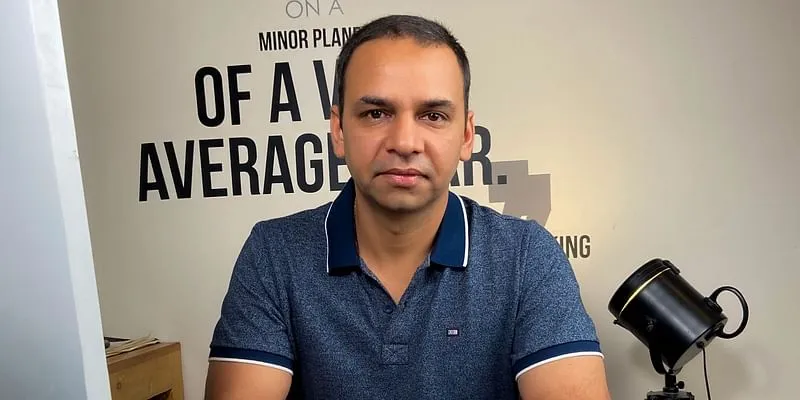How to stick to your New Year health resolutions
While it is easy to come up with new health resolutions, it's 10x harder to stick to them. Defining your goals, setting the right expectations, being accountable, and saying no to shortcuts will help us achieve these goals efficiently.
As we embark towards a new year after having the most hapless year in the past century, the world hopefully looks forward to the arrival of an effective vaccine and happier encounters in 2021.
While the year 2020 has been negative throughout, it has certainly reminded us that “health is the true wealth” and that life really is unpredictable.
The broadening awareness about the importance of health during the COVID era has surfaced with a reflection of our unhealthy habits and initiated much-required dialogues around fitness and mental and physical health.

Image source: Shutterstock
Since 2021 is around the corner, it's a great time for individuals to set up some new health resolutions and challenge themselves to make their year more exciting and healthier.
However, as easy it is to come up with a resolution, it's 10x harder to keep up with it, or not. It is true that most people fail to stick to their resolutions for a long time, but it is mostly because they are not setting the right expectations or overpromising themselves.

Asheesh Grewal, Founder and CEO of MyHealthBuddy
Let's begin and understand how to fulfill our new year health resolutions and achieve the desired goals.
Define your goal
We must clearly and specifically state what we want to accomplish with our resolution. Most of the time, people set vague agendas with no means to measure success.
Statements like, “I want to lose as much weight as possible in the next three months” or “I want to be fit'' do not have milestones to scale your growth, and that’s why it is important that we define SMART goals (Specific, Measurable, Achievable, Relevant, Time-bound).
Whether you want to lose 10 kg in three months or want to fit into your favourite dress or want to be able to do 15 push-ups or 10 pull-ups in a given time, define your targets by using scaling units.
Set the right expectations
A lot of people give up early on their resolutions because they set out with unreasonable expectations. Approaches like "My friend lost 10-15 kgs in three months, so can I” do not work because we don’t realise that two people do not have the same age, gender, eating preferences, family culture, social structure, metabolism, dieting history, medical issues, and motivation.
Even among siblings, there are genetic differences, so it's crucial that we do not compare our journey with anybody else's.
Start small
James Clear in his book “Atomic Habits” beautifully explains that we need to break the habits (ones that we want to build or get rid of) into very small components.
A recipe for failure is when we try to initiate too many things simultaneously.
If you actually wish to grab on to a healthy set of habits, the most effective way is to work on one component first until it doesn't become a part of your routine.
For example, if you want to start exercising from having a really sedentary lifestyle, you would want to first start with 10-minute walks (or some steps target) - things that you can do even on your worst day. Once the routine becomes a new normal, then you can proceed to start tracking your food, and work on the nutrition part. Build upon your habits with "one step at a time" approach, and you'll go a long way.

Image credit: Shutterstock
Get accountable
Get someone you are accountable to. It is a very crucial component of your fitness journey. Transformations do not happen in isolation; you need to get answerable to someone, be it your spouse/ kids/ friends/ colleagues/ trainer or some community.
More than being accountable to anyone else, be accountable to yourself. This makes the whole process fun and there are higher chances that you will stick to the required behaviours. Don't wait for motivation, get disciplined!
Say no to shortcuts
There are no special foods/supplements for weight loss; you don’t need detox drinks or lemon-honey in warm water or vinegar to lose weight; eating rice (or carbs) at night doesn’t make one fat, and eating five to six meals a day doesn’t improve metabolism.
As you move along with your resolution, it is necessary that you gain the right basic knowledge and stick to it.

Image source: Shutterstock
Patience is the key
Many people give up too soon. Once we start with the right expectations, we got to endure the process as well. Humans have not evolved as creatures with “delayed gratification” as their strong trait, but when it comes to health (or any worthwhile thing in life), delayed gratification is one of the most important traits that determine who crosses the finish line and who throws in the towel.
By using these fundamentals of habit psychology, one can easily break free or get hold of any habit. Here are a few actionable steps for people who want to begin their fitness journey as their resolution for 2021.
- Start tracking your food by using some application (at least for two to three weeks). Initial calorie-intake can be calculated by multiplying your weight (in kgs) by 20-25.
- Focus on your protein intake (1.2-1.8 gm protein per kg of your body weight).
- Have a minimum of 2-3 litres of water.
- Include more fruits and vegetables in your diet.
- Be mobile. Strictly walk at least 8-10k steps.
- Plan and do your workouts (4-5 times a week).
- Target a minimum of 7-8 hours of sleep.
Start with one simple resolution and work upon it, and gradually you’ll see yourself mastering most of the healthy habits as a part of your routine.
Edited by Megha Reddy









